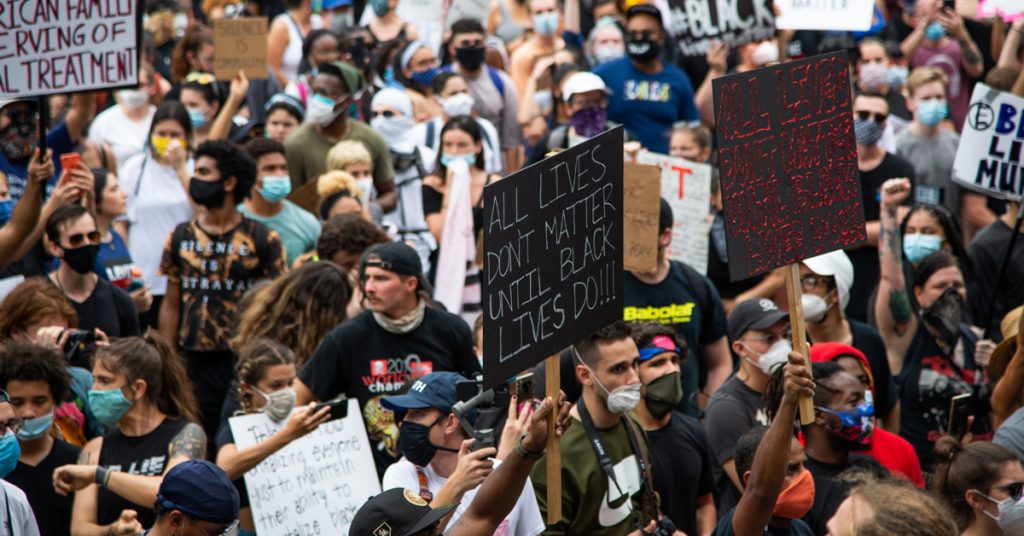
It was always the case that whoever entered or remained in the oval office in January 2021, notwithstanding important differences between the presidential candidates, there would remain a constant; one that has already spanned presidents and congresses, Republican and Democratic alike. That is the US government’s inadequate response to the human, non-human, and planetary necessity to transform our economy and social relations to value people over corporate profit—and obversely, the people’s obligation to force that transformation.
On the grandest scale, the survival of our planet and its inhabitants require nothing short of the greatest shift in economic and social relations in human history. The fossil fuel economy and the extractive economic system of which it is part must be demolished and rebuilt into one that is regenerative, just, democratic, clean, equitable, and sustainable for the flourishing of human and non-human life globally.
Such a shift—which must occur—requires a global, multi-racial, cross-movement effort to expand, democratize, and decolonize ownership and control of land, resources, workplaces, housing, and all the systems of our fast-deteriorating world; one based on solidarity—the understanding that liberation of the most vulnerable is by definition the liberation of all.
This is an incredible task. How will we do it? What actions and frameworks does this effort need to manifest?
As an organization that wants to see the private sector respect human rights and the environment, we have learned that transformative change requires demanding a foundationally different workplace structure. One that centers workers and communities in its governance and ownership, the most consequential elements of economic and social power in the workplace. It means recognizing that having control over one’s workplace and profiting directly from one’s labor must become universal rights for all workers, the benefits of their fruition cutting across race, class, political affiliation, and other social differences.
One duty going forward will be following the lead of the solidarity economy movement and building more institutions and enterprises structured by these principles, such as platform cooperatives and steward-owned companies, and pressuring existing businesses away from the dominant corporate model. Another duty will be demanding President-elect Biden, subsequent presidential administrations, and local and state actors to develop concrete policies that claw back corporate power, dramatically expand community ownership, and put workers at the helm of their own workplaces. Such change is not just possible, but is already happening—albeit too slowly—the bipartisan support and passage of the Main Street Employment Act in 2018 being just one legislative example.
Why do we think these changes are necessary? Because we believe without workers and communities at the center of our economy, the private sector will continue to violate peoples’ rights, deepen economic and social inequalities, and risk environmental collapse.
But the barbarism of both the last four years and the last few centuries will not be undone by our next president; not insofar as strong international and domestic coalitions exerting extraordinary pressure on our entire political and economic systems are absent. In the United States, the Black Lives Matter movement, renewed labor insurgency, and the now greatly unemployed public’s increasing frustration with public institutions, hollowed or privatized by austere neoliberal governance, are the disparate puzzle pieces of transformation. Our work must support and complement organizers and activists already connecting the dots between these issues and movements, as well as other efforts focused on the environment, gender and sexual liberation, anti-imperialism, disability and health justice, indigenous sovereignty, world hunger and poverty, and others to empower all workers and their communities. Indeed, the political strike, a uniting of worker power and social and political movement demands, is no longer a labor action of American history books. Dockworkers struck on Juneteenth in solidarity with Black lives, and as we await Biden’s assumption of power, labor unions were prepared for unprecedented general strikes in the event Donald Trump refused to leave office despite the validity of the election outcome.
Such is the movement-building necessary, in our simultaneously insecure and ripe moment, for deep transformations to our society and economy. It’s time for us to do the work. But what does this mean tangibly? Right now MSI Integrity is examining how we can draw from our experience demanding the private sector be held accountable to human rights standards to go Beyond Corporations, in addition to democratizing how we do that work. We see gaps and untapped alliances in the work of those who are building and creating a solidarity economy, and those who are resisting and challenging corporate power in other capacities, from those fighting against Nestle and Amazon, to debtors’ unions and the struggle for Medicare for All; gaps we can help fill and alliances we can help foster. The coming months will be critical in our own transformation and we plan to detail this shift publicly. Too much is at stake to drag our feet. The post-election constant—the necessity of transformation— will need all hands on deck.
